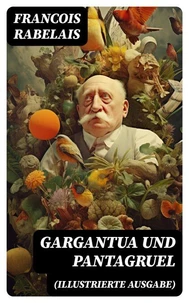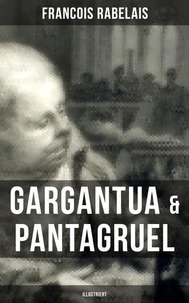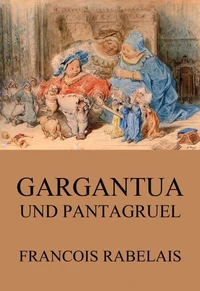The Fourth Book. Exploring Humor and Satire in Renaissance Literature
Par : ,Formats :
Disponible dans votre compte client Decitre ou Furet du Nord dès validation de votre commande. Le format ePub est :
- Compatible avec une lecture sur My Vivlio (smartphone, tablette, ordinateur)
- Compatible avec une lecture sur liseuses Vivlio
- Pour les liseuses autres que Vivlio, vous devez utiliser le logiciel Adobe Digital Edition. Non compatible avec la lecture sur les liseuses Kindle, Remarkable et Sony
 , qui est-ce ?
, qui est-ce ?Notre partenaire de plateforme de lecture numérique où vous retrouverez l'ensemble de vos ebooks gratuitement
Pour en savoir plus sur nos ebooks, consultez notre aide en ligne ici
- Nombre de pages170
- FormatePub
- ISBN406-4-06-646706-7
- EAN4064066467067
- Date de parution10/04/2021
- Protection num.Digital Watermarking
- Taille653 Ko
- Infos supplémentairesepub
- ÉditeurGOOD PRESS
Résumé
François Rabelais' 'The Fourth Book' is a masterpiece of Renaissance literature, known for its satirical and comedic exploration of human nature and societal norms. The book follows the adventures of the giant Gargantua and his son Pantagruel as they embark on various absurd and exaggerated escapades, laced with philosophical musings and witty commentary. Rabelais' writing style is characterized by its rich language, clever wordplay, and deep symbolism, making 'The Fourth Book' a complex and thought-provoking read that challenges traditional literary norms of the time.
This work is considered a classic of French literature and a significant contribution to the development of the novel as a form of literary expression. It offers insights into Rabelais' views on education, morality, and the human condition, all presented through a lens of humor and satire. I recommend 'The Fourth Book' to readers interested in exploring Renaissance literature, satire, and the evolution of the novel as a genre.
This work is considered a classic of French literature and a significant contribution to the development of the novel as a form of literary expression. It offers insights into Rabelais' views on education, morality, and the human condition, all presented through a lens of humor and satire. I recommend 'The Fourth Book' to readers interested in exploring Renaissance literature, satire, and the evolution of the novel as a genre.
François Rabelais' 'The Fourth Book' is a masterpiece of Renaissance literature, known for its satirical and comedic exploration of human nature and societal norms. The book follows the adventures of the giant Gargantua and his son Pantagruel as they embark on various absurd and exaggerated escapades, laced with philosophical musings and witty commentary. Rabelais' writing style is characterized by its rich language, clever wordplay, and deep symbolism, making 'The Fourth Book' a complex and thought-provoking read that challenges traditional literary norms of the time.
This work is considered a classic of French literature and a significant contribution to the development of the novel as a form of literary expression. It offers insights into Rabelais' views on education, morality, and the human condition, all presented through a lens of humor and satire. I recommend 'The Fourth Book' to readers interested in exploring Renaissance literature, satire, and the evolution of the novel as a genre.
This work is considered a classic of French literature and a significant contribution to the development of the novel as a form of literary expression. It offers insights into Rabelais' views on education, morality, and the human condition, all presented through a lens of humor and satire. I recommend 'The Fourth Book' to readers interested in exploring Renaissance literature, satire, and the evolution of the novel as a genre.







